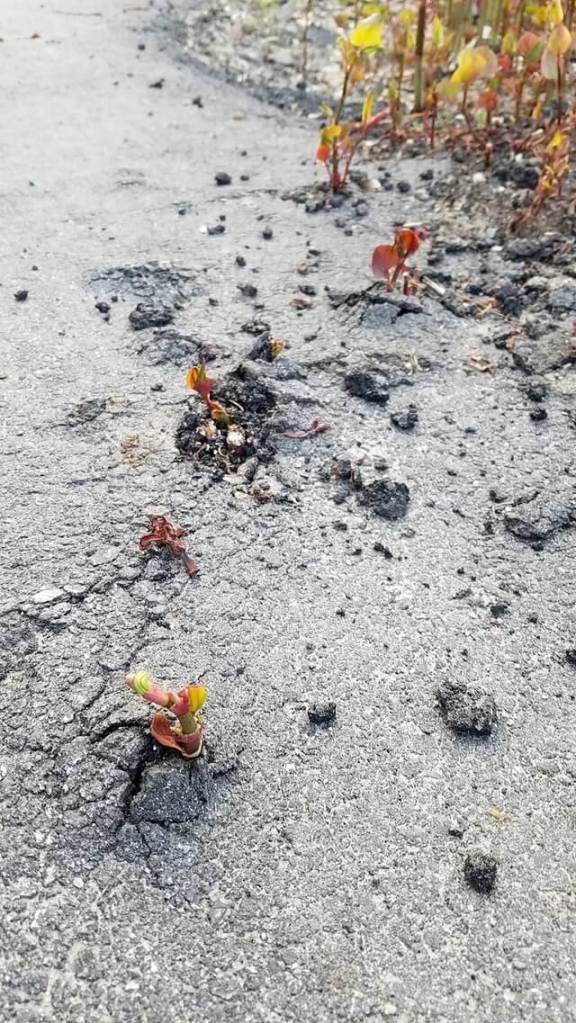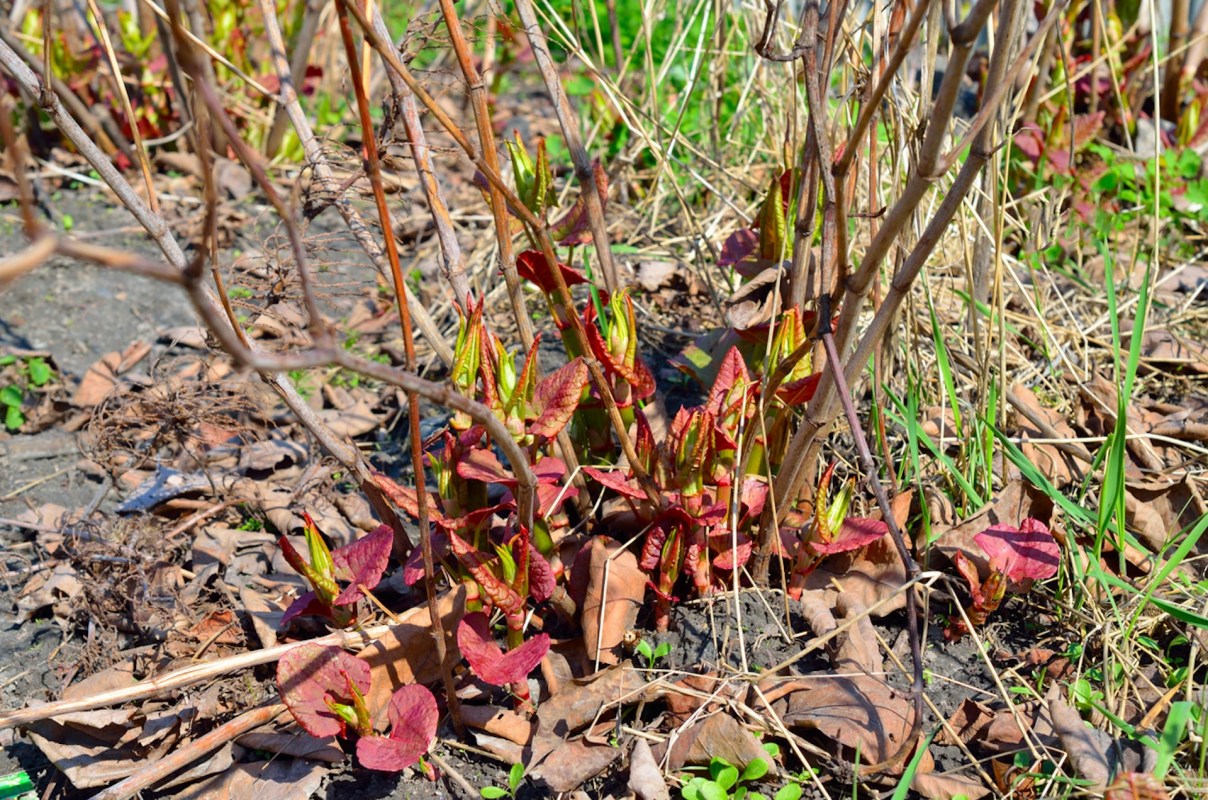If you own a home, you've likely battled your fair share of invasive plants. But have you ever encountered a plant so powerful that it can break through asphalt?
If not, count yourself luckier than a Redditor who shared a photo in the subreddit r/mildlyinteresting (we agree!). The image shows an unwelcome guest in their driveway: red and green stalks topped with pink leaves bursting up through the asphalt.
"Invasive plant growing up through my driveway," the Redditor captioned the post.
Commenters identified the stubborn sprout as Japanese knotweed, which is notorious for its resilience.

Native to Asia, Japanese knotweed was introduced to the United States in the late 1800s, according to the U.S. Department of Agriculture. Once established, the plant is difficult to eradicate. Its root system can tunnel deep, and any fragments left behind spur relentless regrowth.
While Japanese knotweed isn't toxic, its persistence makes it a pain for homeowners. As it spreads, it can create structural damage to concrete, pavement, buildings, and more.
One Redditor commented: "Japanese knotweed is impossible to get rid of. … Only way to get rid of it is to poison the dirt so nothing can grow there" — which every environmentally conscious homeowner cringes to hear.
Luckily, some creative solutions exist. With years' worth of patience, homeowners can put this pesky sprout in its place.
One Redditor whose property suffered a similar outbreak found a furry savior.
"Goats," they said. "They'll eat it everyday and knock it back. It'll take forever but they'll kill it. Source: herd of goats in my backyard."
TCD Picks » Upway Spotlight
💡Upway makes it easy to find discounts of up to 60% on premium e-bike brands
Another Redditor noted that the plant is edible, leading to foraging possibilities.
"Eat your enemy," they encouraged.
And if you don't have a legion of goats or an appetite for wild plants, there's a more practical solution.
"You just need to commit to dealing with it everyday," said another commenter. "Pulling any leaves that sprout on a section of this stuff will eventually kill the roots under the said section. And if you keep up on it, you will see results in a year or two."
Join our free newsletter for easy tips to save more, waste less, and help yourself while helping the planet.













